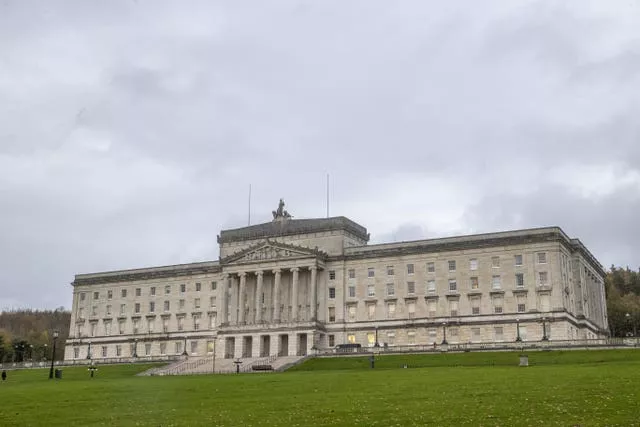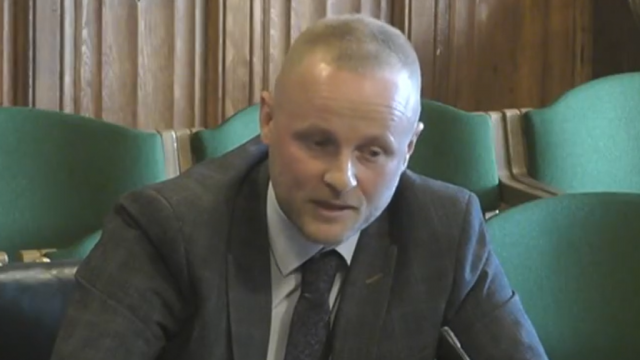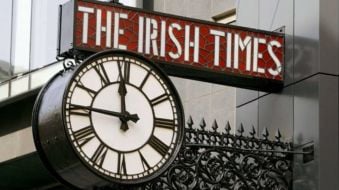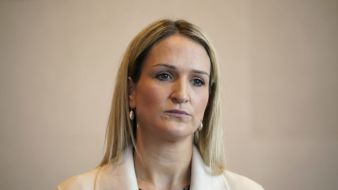There has been a hardening of opinion within loyalist communities in Northern Ireland against the Irish Sea trading border, with many young people looking at “non-political solutions”, MPs have been told.
Loyalist activist Jamie Bryson told the Northern Ireland Affairs Committee he was worried that the process of transition of paramilitary groups towards civilianisation had halted while concerns over post-Brexit trading arrangements remained.
Giving evidence as the director of Northern Ireland Policy at the Centre for the Union, Mr Bryson said paramilitary leaders had told him that young loyalists had been “beating their doors down” wanting to join the fight against the Irish Sea border.
The committee is investigating the effect of paramilitary activity and organised crime on society in Northern Ireland.

Powersharing in Northern Ireland has not been operating for over 18 months as part of a DUP protest at the internal UK trade barriers created by Brexit’s Northern Ireland Protocol.
The party says the Windsor Framework deal struck by the EU and UK to reform the protocol does not sufficiently address its concerns and has made it clear it will not accept a return to devolution until the Government provides further assurances, by way of legislation, over Northern Ireland’s place in the UK internal market.
Talks between the DUP and Government have been ongoing over the summer.
One of the main parts of the framework – the green/red lane system for the movement of goods – became operational at Northern Ireland ports earlier this month.
Mr Bryson told the committee there had to be the “correct political context” for loyalist paramilitary organisations to transition towards civilianisation.
He said: “I think the process of transition and civilianisation is halted and is unable to progress so long as the political context remains as it is.”
He added: “I struggle to see how those organisations can progress. The leaders of those organisations need to be able to say to their members, ‘The Union is safe. The guarantees we signed up to in 1994 and 1998 are still in place.
“They can’t do that while the protocol and framework remains.”

Committee chairman Simon Hoare asked Mr Bryson what his worst fear was about how these concerns would manifest themselves on the streets of Northern Ireland.
Mr Byson said he did not want to whip up tension but opinion is hardening in loyalist communities.
He said: “All protests should be peaceful and lawful at all times.”
Mr Bryson added: “There is significant anger in working class loyalist communities and at the moment the valve for that anger is the political action which the DUP have taken, and they have massive support for that.
“I am worried that if we don’t get a solution to this issue that we could see the progress which has been made, and which we all want to maintain, going backwards and a new generation of young loyalists taking a course which I don’t think they ought to take.
“Young loyalists are very, very angry and many of them are looking at non-political solutions and many of us are working to discourage that and find a political way forward.
“There has to be a solution which deals with the very real concerns and issues.”

DUP committee member Carla Lockhart asked if the Irish Sea border had had an impact on recruitment for loyalist paramilitary groups and if it made transition more difficult.
Mr Bryson said: “In short, yes and yes.
“Senior leaders in the paramilitary organisations told me that young lads were beating their doors down wanting to join the organisations to fight against the Irish Sea border.
“Those organisations did not go on a recruitment drive and they put those young lads down the path of peaceful protest, politics and discouraged violence.”







